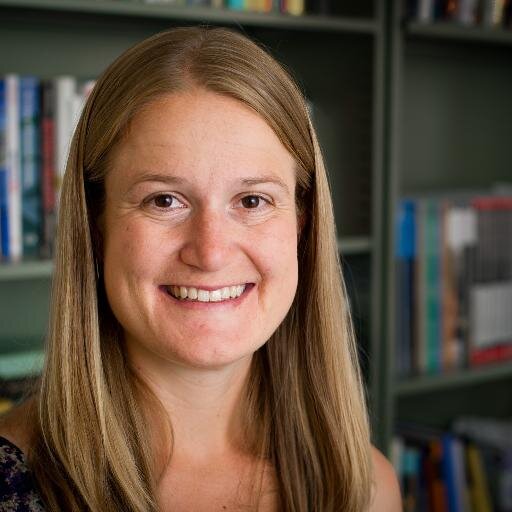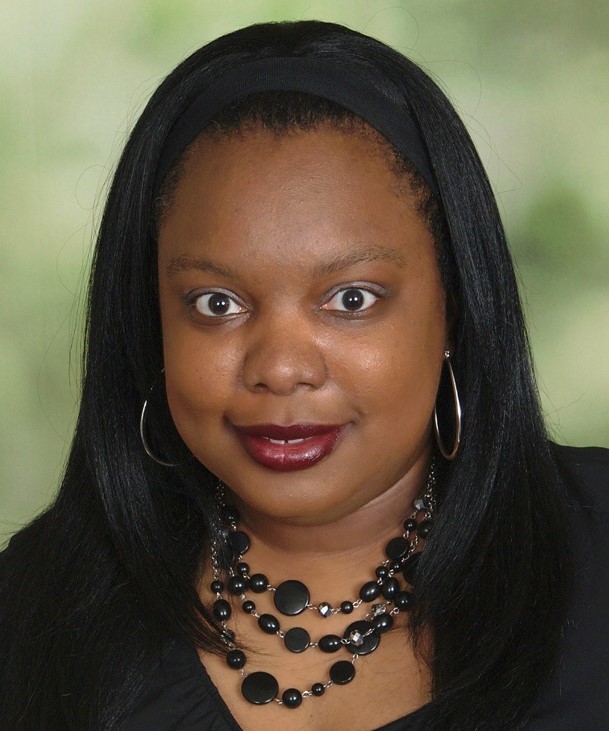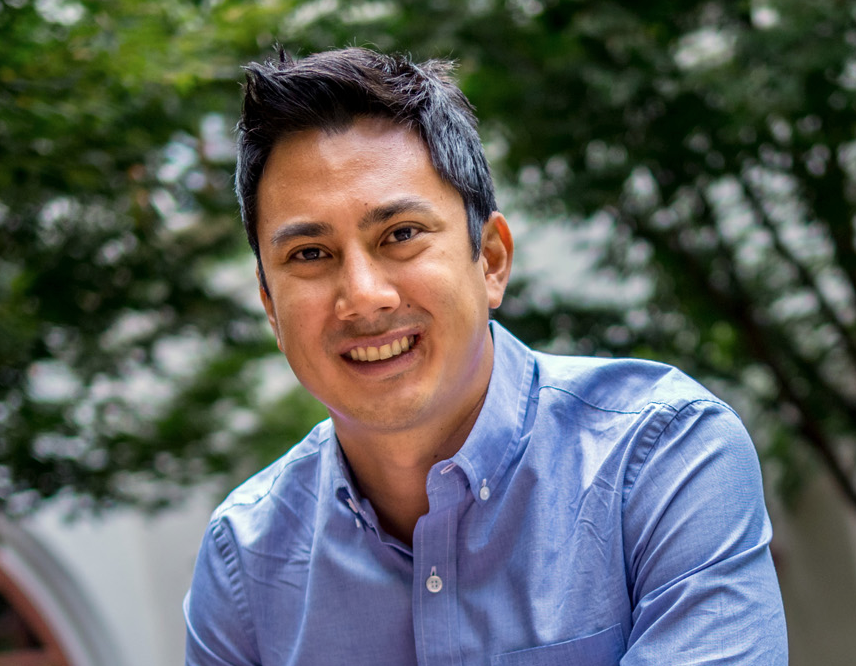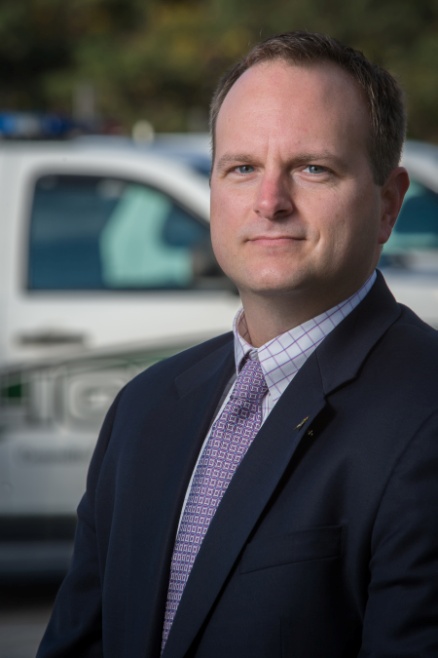Soren Anderson is an Associate Professor of Economics and Agricultural, Food, and Resource Economics at Michigan State University. He studies a range of issues in energy and environmental economics, with a focus on markets for automobiles and the fuels they use, including oil, gasoline, and biofuels. He holds a Ph.D. in economics from the University of Michigan and a B.A. in economics from Macalester College. His research has been published in the American Economic Review, Journal of Environmental Economics and Management, and Journal of Industrial Economics. He is appointed as a Research Associate at the National Bureau of Economic Research, and he serves on the Editorial Board at the Journal of Environmental Economics and Management. He previously served as a visiting researcher at the Energy Institute at Haas at UC Berkeley, as a staff economist with the White House Council of Economic Advisers, and as a research assistant at Resources for the Future.
David Arsen is a professor of Education Policy and K-12 Educational Administration in the School of Education at MSU. He is an economist with specialization in public policy analysis, and this intersection of policy makes him a school finance specialist. His research focuses on school finance, school choice policies, education governance, school capital facilities and the privatization of education services. He has studied the Education Achievement Authority, which was an attempt at overhauling Michigan’s most troubled schools. Some of his recent work addresses emergency school district management and budget shortfalls in Michigan’s Public Schools. His work has been cited by both WKAR and the Detroit Free Press.
Mark Axelrod holds a joint appointment in James Madison College and the Department of Fisheries and Wildlife. His teaching and research interests center around the negotiation and implementation of international law, with a particular focus on environmental agreements. He co-facilitated a 2011 workshop on conservation options for Malawian educators, government officials, industry and NGO participants. His current research centers around two dynamics. First, one area of research addresses statistical tests of institutional change and the conditions under which Regional Fisheries Management Organizations address climate change. Second, other research assesses how international resource governance rules affect local ecological, livelihood, and equity outcomes- particularly in India. Recent work is published or forthcoming in The Journal of Environment & Development, Environmental Policy & Governance, and the European Journal of International Relations. Beyond MSU, Mark is active with the International Studies Association Environmental Studies Section, the United Planet Faith & Science Initiative, and the program on “Legal Preparedness for Achieving the Aichi Biodiversity Targets” supported by the UN Convention on Biological Diversity and International Development Law Organization.
Valentina Bali is an Associate Professor in the Department of Political Science at Michigan State University. Bali joined the MSU faculty in 2001. She received her Ph.D. from the California Institute of Technology in 2001. Bali's research interests focus on policy processes, state politics, education policy, representation, electoral behavior, and quantitative methods. In the area of state politics and policy her current projects explore states' reactions to recent federal mandates affecting personal identification, and the evolution of statewide student information systems. In the area of electoral behavior she examines the relationships between terrorist activity and government approval. Recently she has taught graduate courses in quantitative methods and policy processes, masters level courses in quantitative methods, and undergraduate courses in education policy.
Charles Ballard has been on the Economics faculty at Michigan State University since 1983, when he received his Ph.D. from Stanford University. In 2007, he became Director of the State of the State Survey, in MSU’s Institute for Public Policy and Social Research. Also in 2007, he won the Outstanding Teacher Award in MSU’s College of Social Science. In 2011, he joined the Board of Directors of the Michigan League for Public Policy. He has served as a consultant with the U.S. Departments of Agriculture, Health & Human Services, and Treasury, and with research institutes in Australia, Denmark, and Finland. His books include Michigan at the Millennium and Michigan’s Economic Future.
Johannes M. Bauer is the Chairperson of the Department of Media and Information at Michigan State University (MSU). He is trained as an engineer and social scientist with MA and PhD degrees from the Vienna University of Economics and Business, Austria. Since he joined MSU in 1990, he held several extended visiting professorships, including at the Technical University of Delft, Netherlands (2000-2001), the University of Konstanz, Germany (Summer 2010), and most recently the University of Zurich, Switzerland (2012). His research covers a wide range of issues related to digital entrepreneurship, innovation in information and communication technology (ICT)industries, business models of national and global players, as well as the challenges of harnessing next-generation ICTs for society. Dr. Bauer is a frequent speaker at international conferences and has served as an advisor to public and private sector organizations in North and South America, Europe, and Asia. His most recent book, the Handbook on the Economics of the Internet (co-edited with Professor Michael Latzer at the University of Zurich), was published in 2016 by Edward Elgar.
Dr. Janice Beecher has served as Director of the Institute of Public Utilities at Michigan State University since 2002, and now brings more than 30 years of experience to the position. The Institute delivers continuing professional education and applied research to the regulatory policy community. Dr. Beecher's areas of interest include regulatory institutions, principles, and practices; infrastructure funding and financing; and the structure and governance of the water sector. She is a frequent author, lecturer, and participant in professional forums and Editor of the journal Utilities Policy (Elsevier). She co-authored the book Risk Principles for Public Utility Regulators (MSU Press). Dr. Beecher is presently serving on the U.S. EPA’s Environmental Finance Advisory Board, previously served on Michigan's 21st Century Infrastructure Commission, and chaired the water rates subcommittee of the Flint Water Interagency Coordinating Committee. She has also advised the federal, state, and local governments on water policy, pricing, and affordability. She previously held positions at The Ohio State and Indiana Universities and the Illinois Commerce Commission. She is a faculty member in MSU’s Department of Political Science (Adjunct, Economics) and holds a Ph.D. in Political Science from Northwestern University.
Daniel Bergan studies public opinion, advocacy campaigns, and voter mobilization. He has used field experimental designs to test the impact of citizen contacts to legislators concerning public policies. His research has shown that for some issues, contacts from constituents have a large impact on legislative voting. He is currently researching the impact of stereotypes on perceptions of public opinion and interpersonal communication. He is also exploring the impact of knowledge on political polarization in the public. His academic publications have appeared in Public Opinion Quarterly, Political Behavior, and the Journal of Communication, among other journals / Address: 479 Communication Arts & Sciences Building, East Lansing, MI 48824 / Email: bergan@msu.edu
Kristi Bowman is a Professor of Law and the Associate Dean for Academic Affairs in the College of Law at Michigan State University. Dean Bowman’s expertise of education law issues includes public schools in fiscal crisis, students' free speech rights, racial/ethnic equality in education, and religion in public schools. She is the founder and editor of the SSRN Education Law Abstracting Journal. Dean Bowman is a co-author of the 5th edition of a leading textbook in the field, Educational Policy and the Law (2012), editor of Pursuing Racial and Ethnic Equality in American Public Schools: Mendez, Brown, and Beyond (2015), and author of a textbook written for non-American education law scholars and practitioners, An Introduction to Constitutional Rights to and in Education in the United States (forthcoming 2016). She also is a faculty affiliate of the Education Policy Center at the Michigan State University College of Education. Prior to joining MSU’s Law College faculty in 2007, she practiced at Franczek Sullivan, P.C. (now Franczek Radelet), in Chicago, where she represented school districts, and clerked on the United States Court of Appeals for the Eighth Circuit. During law school she worked at the United States Department of Education, Office for Civil Rights. In 2001, Dean Bowman graduated magna cum laude from the Duke University Law School and simultaneously received her M.A. in Humanities from Duke University.
Dr. Mark Brandt is an Assistant Professor of Psychology at Michigan State University. His primary research goal is to understand ideological and moral beliefs – such as political ideology, racism, religious fundamentalism, and moral conviction – and how they structure attitudes and behaviors, how they provide people with meaning, and why people adopt them in the first place. Three lines of published research directly related to policy aim to understand (1) why people express prejudice towards people and groups they disagree with, (2) how to be persuasive across moral and ideological divides, and (3) when people are likely to trust their government and see their social system as legitimate. Other interests include aims to understand public opinion surrounding a broad range of public health issues.

Holly Brophy-Herb studies how: 1) parents/teachers socialize very young children's emotions; 2) emotions socialization practices vary according to characteristics such as family climate, culture, and adults’ reflective capacity; and, 3) emotion socialization practices relate to early social-emotional development. Dr. Brophy-Herb also studies how child/family processes relate to obesity. Her work informs the development of intervention and training models in family and childcare contexts. Her Building Early Emotion Skills curriculum with MSU Extension has garnered national attention. Dr. Brophy-Herb is Associate Editor, Infant Mental Health Journal, a recipient of Extension’s Key Partner award, and co-founder of the Michigan Infant-Toddler Research Exchange. Her work, funded by the USDA and the US Administration for Children and Families, reflects collaborations with MSU colleagues, Wayne State University, the University of Michigan, Early Head Start/Head Start, and families. Her areas of interest include parenting and emotion socialization, self-regulation and emotion regulation, early intervention and prevention. infant mental health, reflective functioning and obesity risk
Dr. Rebecca Campbell is a professor of Community Psychology and Program Evaluation at MSU. Her research focuses on how legal, medical, and mental systems respond to the needs of rape survivors. Dr. Campbell is an expert in sexual assault research, violence against women, psychology of women, and sexual assault resource analysis for medical forensic exams. She is a member of the Research Consortium on Gender-Based Violence at MSU. From 2011-2013 she was the principal investigator on a grant from the National Institute of Justice for the Implementation of Sexual Assault Nurse Examiner programs, community based interventions designed to provide comprehensive post-assault services to pediatric and adult victims of sexual assault. She won the 2002 Emerging Leader Award from the Committee on Women in Psychology of the American Psychological Association. She has been active in the anti-violence social movement since 1989 and has spent over 10 years working as a volunteer rape victim advocate in hospital emergency departments.
Dr. Courtney Carignan is an exposure scientist and environmental whose research helps protect reproductive and child health by investigating exposure to contaminants in food, water, consumer and personal care products. She conducts biomonitoring and health studies for a wide range of populations, including preconception and birth cohorts as well as communities exposed to contaminated drinking water. Her research has contributed to public health interventions aimed at reducing exposures to flame retardants, perfluoroalkyl substances (PFAS), and arsenic. She serves on the Environmental Health Research and Surveillance Guidance Panel for the Michigan Department of Health and Human Services, as a liaison for the National Academies of Sciences, Engineering and Medicine Guidance on PFAS Testing and Health Outcomes, and as a Scientific Advisor for the Center for Disease Control’s Agency of Toxic Substances and Disease Control Registry Community Assistance Panel for Pease Tradeport.
Dr. Carignan holds a joint appointment in the Department of Food Science and Human Nutrition and the Department of Pharmacology and Toxicology at Michigan State University. She received postdoctoral training in environmental reproductive epidemiology at the Harvard T.H. Chan School of Public Health and Dartmouth Geisel School of Medicine. Dr. Carignan completed a PhD in Environmental Health at the Boston University School of Public Health and B.S. in Biological Sciences at Rutgers University.
Dustin Carnahan is Assistant Professor in the Department of Communication at Michigan State University. He studies political communication with an emphasis on how communication processes - specifically mass media - influence public opinion and political behavior.
David L. Carter is a Professor in the School of Criminal Justice and Director of the Intelligence Program. His expertise is in the areas of policing issues, violent crime control, law enforcement intelligence and homicide investigation. A former Kansas City, Missouri police officer, Dr. Carter was Chairman of the Department of Criminal Justice at the University of Texas Rio Grande Valley nine years prior to his appointment at Michigan State in 1985. He has served as a trainer, consultant, and adviser to many law enforcement agencies throughout the U.S., Europe and Asia on various law enforcement issues. In addition, he has presented training sessions at the FBI National Academy, the FBI Law Enforcement Executive Development Seminar (LEEDS), the International Law Enforcement Academy in Budapest, Hungary; the United Nations Asia and Far East Institute (UNAFEI) in Tokyo; special programs for the Royal Thai Police, Hong Kong Police, the British Police Staff College at Bramshill, several British Police Constabularies and police “command colleges” of several states. He also served at the FBI Academy’s Behavioral Sciences Unit, the first academic faculty exchange with the Bureau. Dr. Carter is an Instructor in the Bureau of Justice Assistance SLATT program, author of the COPS-funded publication, Law Enforcement Intelligence: A Guide for State, Local and Tribal Law Enforcement; served as Project Director for three multi-million dollar national intelligence training programs funded by the Department of Homeland Security and co-Project Director of a National Institute of Justice grants to do a nationwide study on best practices and efficacy of law enforcement intelligence initiatives. Recently, Dr. Carter served as Team Leader for the Justice Department's Assessment of the Police Response in Ferguson, Missouri. He also served as Team Leader of two Department of Justice assessments of the Homicide Units at the New Orleans Police Department and Puerto Rico Police Department. He is an Academic Fellow of the Foundation for Defending Democracies where he studied terrorism in Israel. He is the author or co-author of five books and numerous articles and monographs on policing issues and is a member of the Editorial Boards of various professional publications. Dr. Carter is also a member of the Justice Department’s Global Intelligence Working Group Training Committee and Privacy Committee. Among the awards he has received, are the University Distinguished Alumni Award from Sam Houston State University, Huntsville, Texas and an Honorary Doctorate of Laws awarded from the University of Central Missouri.
Dr. Kaston Anderson-Carpenter is an Assistant Professor of Ecological-Community Psychology at MSU. He is also a core faculty member in the MSU Consortium for Multicultural Psychology Research. He earned his Ph.D. in behavioral psychology from The University of Kansas. His research focuses on how social determinants impact health disparities in underserved communities. His work examines health disparities from an ecological perspective, including the impact of social policies at the local, state, and federal level on health and well-being for marginalized populations. Since 2010, Dr. Anderson-Carpenter has worked with local and state policy makers in areas including substance abuse and injury prevention. Dr. Anderson-Carpenter’s work has been published in several journals, addressing socially significant conditions in a variety of contexts. He is also the 2015 recipient of the G. Alan Marlatt Award for distinguished Scientific Early Career Contributions by the Society of Addiction Psychology (APA Division 50).
Dr. Caitlin Cavanagh, a developmental psychologist, is an assistant professor of Criminal Justice and an adjunct professor of Ecological-Community Psychology at Michigan State University. After completing her B.A. in Psychology at the University of Rochester, Dr. Cavanagh worked in the European Union Parliament. Through this experience, she learned first-hand how high-quality social science research can affect public policy. As a result, she shifted her interest in studying adolescent development broadly to producing policy-applicable research to help youth and their families interact with the law. in 2016, she received her Ph.D. in Developmental Psychology at UC Irvine, with specializations in Psychology and Law and Quantitative Methods. Broadly, Dr. Cavanagh's research focuses on the intersections of psychology, social policy, and criminology to explain how social contexts shape adolescent behavior. Specifically, her research team focuses on three interrelated concerns: (1) the dynamic, reciprocal relation between adolescent development and contact with the juvenile justice system; (2) how youth develop attitudes about the law; and (3) ways that law and policy can better support families whose children come into contact with the justice system. Her goal is to use developmentally-sound research to improve how the juvenile justice system interfaces with children and families. Learn more about her current research at https://www.theadjustlab.com/.
Dr. William Chopik is an Associate Professor of Psychology at Michigan State University. He earned his Ph.D. from the University of Michigan in Personality and Social Contexts. Dr. Chopik’s primary research focuses on how relationships—and the people in them—change over time. He takes a broad methodological approach to answering this question, examining factors both inside (biological, hormonal) and outside (social roles, geography) of people influence their approach to social relationships. Some of his recent work includes co-authored pieces in Encyclopedia of Adulthood and Aging entitled “Adult Attachment” and “Attachment Processes” in Wiley Encyclopedia of Health Psychology. From a policy perspective, Dr. Chopik is interested in cultural and generational change and how these changes affect how we interact with others. His other interests include close relationships, physical health and biological functioning, and lifespan development.
Dr. Lisa D. Cook is a Professor in the Department of Economics and in International Relations (James Madison College) at Michigan State University. Dr. Cook earned a Ph.D. in economics from the University of California, Berkeley. Her current research interests are economic growth and development, financial institutions and markets, innovation, and economic history. During the 2011-2012 academic year, she served as Senior Economist at the President’s Council of Economic Advisors. While at Harvard University, Dr. Cook was Deputy Director for Africa Research. She has advised the governments of Nigeria and Rwanda on economic policy, and she was Senior Adviser on Finance and Development at the Treasury Department from 2000 to 2001. From November 2008 to January 2009, Dr. Cook was on the Obama Presidential Transition Team. Dr. Cook has held positions or conducted postdoctoral research at the National Bureau of Economic Research, the Federal Reserve Banks of New York and Philadelphia, the World Bank, the Brookings Institution, the Hoover Institution, Citigroup, and Bank of America. She was the first Marshall Scholar from Spelman College, as well as a Truman Scholar from Georgia. She speaks English, French, Russian, Spanish, and Wolof.
Shelia R. Cotten is a Professor in the Department of Media and Information at Michigan State University. She studies technology use across the life course and the social, educational, and health impacts of that use. She conducts large-scale community based intervention studies designed to use technology to enhance various aspects of quality of life. Dr. Cotten has studied the largest dissemination of One Laptop Per Child (OLPC) XO laptops in the United States. She is currently finishing up a randomized controlled trial designed to enhance quality of life among older adults through the use of technology training. Her work is currently funded by the National Institutes of Health and the National Science Foundation. She is the past Chair of the Communication and Information Technologies Section of the American Sociological Association (CITASA) and the 2013 recipient of the Public Sociology Award from the CITASA section of the American Sociological Association. Dr. Cotten enjoys teaching courses on the social impacts of technology, survey research, and research methods. Prior to joining MSU, Dr. Cotten was a Professor in the Department of Sociology at the University of Alabama, Birmingham.
Joshua Cowen is an associate professor of education policy in the College of Education at Michigan State University. Prior to joining MSU he was an assistant professor of public policy at the University of Kentucky. His research interests include teacher quality, student and teacher mobility, school choice, accountability, program evaluation and the implementation of education policy. His work has been published in the American Educational Research Journal, Economics of Education Review, Educational Evaluation and Policy Analysis, Education Finance and Policy, Educational Researcher, the Journal of Policy Analysis and Management,Sociology of Education and Teachers College Record, among other outlets. He has also received or have been awarded funding from the U.S. Department of Education, the Spencer Foundation, the Laura and John Arnold Foundation, Smith Richardson Foundation, the Walton Family Foundation and the Russell Sage Foundation. From July 2014 to July 2015 he served as Associate Editor of Education Finance and Policy (MIT Press), and is presently co-editor of Educational Evaluation and Policy Analysis (SAGE). He received his Ph.D. from the University of Wisconsin-Madison.
Stacy Dickert-Conlin is a Professor in the Department of Economics at Michigan State University. She received her Ph.D. from the University of Wisconsin-Madison in 1996 and held previous positions at the University of Kentucky and Syracuse University. Her current research agenda considers how policies in the United States food and nutrition program (formerly, Food Stamps) affect program caseloads and how policies that affect the supply of organ donors affect waiting list outcomes of organ transplant candidates. Her research also focuses on the effect of taxes and welfare programs on family structure decisions. She is particularly interested in whether financial incentives implicit in the welfare, income tax, and Social Security system affect fertility and marriage decisions. Dickert-Conlin also has research on how college admissions’ policies such as early decision and optional test score reporting affect higher education access.
Thomas Dietz is a professor of Sociology and Environmental Science and Policy (ESPP) and assistant vice president for environmental research at Michigan State University. He holds a Ph.D. in ecology from the University of California, Davis, and a bachelor of general studies from Kent State University. At MSU he was founding director of the Environmental Science and Policy Program and associate dean in the Colleges of Social Science, Agriculture and Natural Resources and Natural Science. Dietz is a Fellow of the American Association for the Advancement of Science, and has been awarded the Sustainability Science Award of the Ecological Society of America, the Distinguished Contribution Award of the American Sociological Association Section on Environment, Technology and Society, and the Outstanding Publication Award, also from the American Sociological Association Section onTom Dietz 2014 Environment, Technology and Society and the Gerald R. Young Book Award from the Society for Human Ecology. At the National Research Council he has served as chair of the U.S. National Research Council Committee on Human Dimensions of Global Change and the Panel on Public Participation in Environmental Assessment and Decision Making, and currently is vice chair of the Panel on Advancing the Science of Climate Change of the America’s Climate Choices study.
Dr. William A. Donohue is a Distinguished Professor of Communication at Michigan State University. His major academic interests include conflict negotiation, conflict management, communication, and mediation. He has published extensively in these areas while also conducting workshops and other intervention activities focusing on communication, leadership development, and conflict management. His co-authored book, Framing Matters: Perspectives on Negotiation Research and Practice in Communication, provides a broad understanding of the role of framing in negotiation research. Other recent work includes “Crisis Negotiation: Getting to Normal” in the Encyclopedia of Interpersonal Communication, “Interpersonal Conflict: An Overview” in Managing Interpersonal Conflict: Advances Through Meta-Analysis, and a co-authored article in the Journal of Language and Social Psychology entitled, “Validating LIWC Dictionaries: The Oslo Accords.” Dr. Donohue is a recent past president of the International Association for Conflict Management and is on the editorial board of several major journals. He received his Ph.D. from The Ohio State University in 1976.
Sarah N. Douglas is an Associate Professor in the Department of Human Development and Family Studies at Michigan State University. She obtained her PhD at Penn State University in Special Education. Dr. Douglas began her career as a special education teacher where she taught students with significant disabilities and worked extensively with paraeducators. Her research interests related to policy include a focus on the use of paraeducators in educational settings, educational practices for students with significant disabilities (including autism and intellectual/developmental disabilities), and early intervention practices for children with disabilities. She has three current grants: The Early On Faculty Grant -investigating early intervention practices in Michigan, the Michigan Applied Public Policy Research –investigating policies and practices related to paraeducators in Michigan, and Research in Autism Intellectual and Neurodevelopmental Disabilities investigating the use of sensor technology to measure social interactions of young children with autism.
William H. Dutton is the Quello Professor of Media and Information Policy, Department of Media and Information in the College of Communication Arts and Sciences. He is Director of the Quello Center at MSU. Bill was Professor of Internet Studies at the Oxford Internet Institute and Fellow of Balliol College from 2002-2014. Before coming to Oxford, Bill was a Professor in the Annenberg School for Communication at the University of Southern California since 1980. He continues at USC as Emeritus Professor. Bill was a Fulbright Scholar based in the UK at Brunel University, and later the National Director of the UK’s Programme on Information and Communication Technologies (PICT). He is working on a book on his concept of the Fifth Estate. As founding director of the OII during its first decade, he received a Lifetime Achievement Award from the department in 2011. He has received the International Communication Association’s Fred Williams’ award for contributions to the study of communication and technology, the William F. Ogburn Lifetime Achievement Award from the Communication and Information Technologies Section of the American Sociological Association, and in 2015 was named an ICA Fellow by the Board of Directors of the International Communication Association.
Jon X. Eguia, Ph.D., is a Professor of Economics and (by courtesy) of Political Science at Michigan State University. He joined Michigan State in 2014. He has also worked at New York University, the University of Bristol and at Harvard University. He serves as an Associate Editor for the Journal of the European Economic Association. His expertise is in Collective Choice, Institutional Design and Political Economy. His work on partisan fairness in redistricting is forthcoming in the Election Law Journal. He earned his doctorate in Social Sciences at Caltech in 2007.
Todd Elder is a Professor of Economics at Michigan State University. He received his PhD from Northwestern University in 2002, and he was on the faculty at the University of Illinois-Urbana Champaign before coming to MSU in 2006. Dr. Elder is an expert in the economics of education and early childhood development, program evaluation, and expectations formation among the elderly. His research has an impressively wide range: from a studies on effectiveness of Catholic versus public primary schools, to health and retirement expectations among aging workers, to racial and ethnic disparities in infant mortality. He has also pioneered research on how ADHD may be drastically misdiagnosed among children in the US. He notably finds that an ADHD diagnosis is relative to the ages of a student’s classmates, which means that a five-year old in a classroom of six-year-olds is more likely to get a diagnosis. This also wastes $320-$500 million per year in unnecessary medication or $80-$90 million when paid by Medicaid.
Dr. Ross B. Emmett is Professor of Political Economy and Political Theory & Constitutional Democracy at James Madison College at Michigan State University. He is also Director of the Smith-Tocqueville Center for Studies in Political Economy. His teaching deals primarily with the central questions of comparative economic governance: why do some nations fail when others succeed? And what is the relationship between basic economic institutions and their legal, cultural and political contexts? His research concerns both the history of how modern societies have answered these questions, and how today’s answers affect liberty, innovation and entrepreneurship. Emmett is a historian of economics. In 2009, he published Frank Knight and the Chicago School in the History of American Economics. He has edited five collections of material on the history of economics, including the Elgar Companion to the Chicago School of Economics and Great Bubbles — an interdisciplinary examination of the financial crises of the 17th and 18th centuries.
Eric Freedman is Professor of Journalism and former Associate Dean of International Studies and Programs. Before joining MSU full time in 1996, he covered public affairs, environmental issues and legal affairs for newspapers in New York and Michigan, winning a Pulitzer Prize for coverage of a legislative corruption scandal. He is Director of the Knight Center for Environmental Journalism and Directors of the Capital News Service, an internship where students cover state government for newspapers across Michigan. He has a bachelor’s degree is in government from Cornell University, a law degree from New York University, and a master’s degree in resource development from MSU. He was a Fulbright scholar in Lithuania and Uzbekistan, he led professional journalism seminars in Central Asia, and lectured in Singapore, Russia, Kazakhstan, Uzbekistan, Japan and Kyrgyzstan. He served for three years as an International Scholar in the Open Society Foundation’s Academic Fellowship Program, working with faculty members in the Department of Journalism and Mass Communication at American University of Central Asia in Kyrgyzstan. He has directed MSU’s Australia Media, Environment, Culture and Tourism study abroad program, the Reporting in the British Isles study abroad program, and a freshman seminar abroad on environment and media in Scotland.

Dr. Stephen P. Gasteyer is an Associate Professor of Sociology at Michigan State University. Dr.Gasteyer’s research focuses on the nexus between water, land, community development. Specifically, his research currently addresses: 1) community capacity development and civic engagement through leadership training; 2) the political and social processes that enable or hinder community access to water and land resources, specifically (but not exclusively) in rural communities; 3) the class and race effects of access to basic services (water, sanitation, food, health care); 4) community capacity, community resilience and water systems management; 5) the impacts of greening in economically depressed small cities; 6) the community aspects of bioenergy development; 7) international social movements and community rights to basic services; and 8) facilitating cross-sectoral and interdisciplinary partnerships to address water and land resources management. Before coming to Michigan State University, Dr. Gasteyer was on faculty in the Department of Human and Community Development at the University of Illinois. Prior to that, he was Research and Policy Director at the Rural Community Assistance Partnership in Washington, DC and a research consultant on issues of global water governance. Dr. Gasteyer was a Peace Corps Volunteer in Mali from 1987 through 1990, and worked with environmental non-governmental organizations from 1993 through 1998 in the Palestinian territories. He received a BA from Earlham College in 1987, and a Ph.D. in Sociology from Iowa State University in 2001.
Lissy Goralnik is an assistant professor in environmental studies and community engagement in the Department of Community Sustainability. She is also affiliated with the Center for Gender in a Global Context (GenCen) and the Environmental Science and Public Policy (ESPP) program. Broadly her work lies in the areas of environmental ethics and experiential and environmental learning. She uses the tools of qualitative social science—interviews, questionnaires, focus groups, participatory methods, ethnography, text analysis—to explore relationships, learning, and engagement with self, communities, and place. Lissy has a PhD in Fisheries and Wildlife from MSU, an MFA in creative writing from the University of Idaho, and a bachelor’s in English from Stanford University. She also worked for years as a field educator for wilderness leadership schools and my academic work on experiential learning reflects this training and practice. For her dissertation work she studied a wilderness ethics field course she developed and taught in Isle Royale National Park, exploring the ways care for place and community develops or shifts as a result of a community-focused environmental ethics and place-based ecology curriculum. Prior to returning to MSU she was a postdoctoral scholar in the Department of Forest, Ecosystems, and Society at Oregon State University, where she primarily worked in the H.J. Andrews Experimental Forest on projects related to arts, humanities, and environmental science interactions.

As a medical geographer, Sue Grady’s research aims to improve the health and well-being of infants, children, men and women living in high poverty urban and rural areas. She focuses on the societal determinants of health -- physical, social and built environmental hazards, individual and population-level exposures and the adverse health outcomes and premature mortality that result from those exposures. She utilizes geographic information systems (GIS) and spatial epidemiological methods to analyze large health, linked-mortality and environmental datasets to model these multilevel and space-time relationships. Most of her research is in the United States, in the Midwest and Northeast Regions, where inner-city urban residents are exposed to hypersegregation, concentrated poverty, high pollution levels and other related environmental hazards. In particular, she is interested in reducing maternal (pregnancy-related) untoward exposures and adverse birth outcomes -- low birth weight, preterm birth and neonatal and infant mortality and maternal mortality among black mothers and infants living in those areas. My research is also international, focusing on distal and proximal determinants of maternal and infant mortality in extremely poor parts of the world. Medical geographers are in a unique position to study environmental injustices and health disparities because of our theoretical focus in Human Ecology. Human ecology realizes the integrative nature of humans (susceptibility, resilience), the environments in which they operate (vulnerable or health-enhancing) and the culture in which they behave (stress-reducing or health promoting). In addition, health geographers focus on place and the lived experience of residents.
Matt Grossmann serves as the Director of the Institute for Public Policy and Social Research and Associate Professor of Political Science at Michigan State University. His research spans national and state policymaking, election campaigns, interest groups, and political parties. His current work explores key differences between major political parties and economic inequality in policy influence. He is the author of Artists of the Possible: Governing Networks and American Policy Change Since 1945, published by Oxford University Press in 2014 and The Not-So-Special Interests: Interest Groups, Public Representation, and American Governance, published by Stanford University Press in 2012. He is author of numerous journal articles on such topics as policy change, political party networks, the legislative process and public opinion. His research appears in the Journal of Politics, Policy Studies Journal, Perspectives on Politics, American Politics Research and other publications. He also writes for blogs and popular media. His roots are also deep in practical politics, especially in candidate training, policy and survey research. His experience includes work at the Rose Institute of State and Local Government, the Institute of Governmental Studies, the Center for Voting and Democracy and the Center for Democracy and Technology. A member of MSU’s faculty since 2007, he is founder and director of the Michigan Policy Network and served as liaison to MSU’s Washington Semester Program. He received his bachelor’s degree from Claremont McKenna College, his master’s in political science in 2002 and doctorate from the University of California, Berkeley, in 2007. He became IPPSR director in January 2016.
Karl Gude is the Director of the Media Sandbox, an integrated media arts program of cinematic arts, game development, graphic design, web design, visual storytelling, 3D art and animation, in the College of Communications Arts and Sciences. Gude is the former Director of Information Graphics at Newsweek magazine and The Associated Press. Gude has consulted with corporations, PR and news organizations, academic and scientific institutions and government agencies, including the CIA, to help them create understandable infographics. He has covered major news events including seven presidential elections, wars, sporting events, natural disasters, science, medical and technical advancements and breaking news, such as the attack on the World Trade Center. Gude came to MSU in 2006 to spearhead the first information graphics program in the School of Journalism. He also teaches a Media Sandbox class on creative thinking and problem solving. Gude has presented at three TEDx talks, twice at the South by Southwest (SXSW) technology conference, and once at the "Political Analytics Conference" at Harvard University. He also collaborated on an evolutionary biology project through a grant from the National Science Foundation. In 2013, Gude was recognized with the Faculty Impact Award. He is an avid sketch artist and painter and writes (or draws) a column for the Huffington Post.
Steven Haider is a Professor in the Economics Department at Michigan State University and has been the Director of Graduate Studies since 2014. His research interests fall broadly within the fields of labor and health economics, with past publications focusing on issues related to the effect of social programs aimed at the poor, nutrition policy, poverty, the labor market, and observational methods. Haider's current research projects are largely related to two topics. The first set of projects continue his work on understanding disparities in child health in the United States, including the role of the decision to vaccinate children. The second set of projects examine the role of parental support and parental income for the college attendance decision of young adults. Dr. Haider receved in Ph.D. in Economics from the University of Michigan in 1998.
Dr. Hamlin is Professor of Urban Planning and Public Administration at Michigan State University. He directs several projects at the Institute for Public Policy and Social Research and Urban Collaborators at Michigan State University. He was previously Associate Director of IPPSR. He is also a Senior Ph.D. Professor of Public Administration at the Babes-Bolyai University in Romania and has been a Visiting Professor of Architecture at the Tokyo Science University in Japan. He has worked for the Senate and the Office of Planning Services of New York State and has lived and worked in South America, the Caribbean, Asia and Europe. He has written several books and has designed multiple industry-related software packages. Dr. Hamlin has earned the White House Achievement Award, The Nelson Jack Edwards Award for “the Greatest Contribution to Metropolitan Detroit,” and the Illinois Foundation Award. He has earned national awards from the American Planning Association and the American Institute of Certified Planners. He was a CIC Academic Leadership Fellow and an American Council on Education Fellow Finalist. Dr. Hamlin has been listed in the “Who’s Who in America,” “Who’s Who in the Midwest,” and “Who’s Who in Finance and Industry.”

Joe Hamm is Associate Professor of Criminal Justice and Environmental Science and Policy at Michigan State University and part of the university’s Global Water Initiative. A psychologist by training, his work is at the nexus of institutions and the public where he investigates what trust is, how best to appropriately measure it, and its connection to "outcomes" like cooperation and compliance. His work spans contexts like the police, courts, natural resource regulators, risk managers, and a variety of other governmental entities and, through this perspective, seeks contribute to a cross-boundary social science of trust that can be leveraged to make a practical difference in the relationships between institutions and the public they serve.
Heather Howard is an assistant professor of Anthropology and a member of the research faculty at the Center for Aboriginal Initiatives at the University of Toronto. She is also an affiliated faculty member with the American Indian Studies Program, the Native American Institute, and a member of the core faculty at the Canadian Studies Center and the Center for Gender in Global Context. Dr. Howard’s research examines the processes through which authoritative forms of knowledge, identity, responsibility, and choice are produced; how these structures create gendered and racialized inequalities; and are historicized, contested, and reconfigured in culture, social service, and healthcare delivery organizations. Indigenous people and urbanization is a central focus of her research, in which she examines the evolution of urban indigenous epistemologies of community, including authority-making structures, and the production of knowledge itself as a dynamic process which intervenes in the production of politics, ethical practice, and the social order. Her research on diabetes is among the evidence that shows there are significant inequities in health determinants and health status for indigenous peoples in urban areas. During the spring semester 2016, she was a Visiting Scholar at the University of Oxford with the Unit for Biocultural Variation and Obesity in the Institute of Social and Cultural Anthropology.
Dr. Tomas Hult is the Byington Endowed Chair, Professor of Marketing and International Business, and Director of the International Business Center (IBC) in the Eli Broad College of Business at Michigan State University (John W. Byington, a marketing research expert, was a former president of the NPD Group Worldwide Inc.). He has been at Michigan State University since January 2001. IBC is one of the 17 centers designated by the U.S. Department of Education as a country-level resource in international business and trade (i.e., CIBER). Previously, he held positions as Eli Broad Professor of International Business, Professor of Marketing and Supply Chain Management, and Associate Dean in MSU's Eli Broad College of Business The Broad College is accredited by AACSB and a member of the Global Business School Network. Michigan State University is one of 62 members of the prestigious Association of American Universities. more than 12,000 firms nationwide going international since 2006, with more than 1,900 firms from the State of Michigan.
Scott Imberman is a professor of economics and education and an affiliate of the National Bureau of Economic Research. He received his Ph.D. in economics from the University of Maryland in 2007 and previously worked at the University of Houston before joining Michigan State in 2012. Dr. Imberman is an expert on the economics of education and education policy and has written on many topics in education policy including merit pay for teachers, charter schools, gifted and talented programs, bilingual education, and accountability. His work has been published in many highly regarded economics journals including the American Economic Review and the Review of Economics and Statistics. Dr. Imberman is also on the editorial boards of multiple journals and is a member of the board of directors of the Association for Education Finance and Policy.
Emilie Jackson is an Assistant Professor in the Economics Department at Michigan State University. Her research is in the fields of public and labor economics as well as healthcare economics. Her recent work uses US tax data to explore the implications of the growth in gig employment opportunities (e.g. Uber, Lyft, TaskRabbit, etc.) for individuals facing unemployment shocks. She quantifies the take-up of gig work during unemployment and evaluates the ability to smooth income in the short-run. Furthermore, she evaluates the long-run implications for workers’ labor supply, skill acquisition, and earnings trajectory. Additionally, her work has examined how large changes in insurance coverage from the Affordable Care Act affected labor market outcomes, health outcomes and utilization, and hospitals' financials. Dr. Jackson received her PhD in Economics from Stanford University in 2020.
Mevan Jayasinghe is an Associate Professor in the School of Human Resources and Labor Relations at Michigan State University. He received his PhD in Business (Management and Human Resources) from the University of Wisconsin-Madison in 2013.
Professor Jayasinghe conducts international research on the effectiveness of human resource and corporate social responsibility investments and on disparities in job quality (pay, safety, employment discrimination) across countries. His most recent work, centered in the context of global supply chains and using data from emerging economies such as Sri Lanka, examines the discretionary human resource investments made by supplier firms (e.g. voluntary labor codes & certifications) and the impact of these investments on business performance and working conditions. He has published his work in leading scholarly journals, such as the Academy of Management Journal, the Journal of Applied Psychology, the Journal of Management, the Journal of Organizational Behavior, and the British Journal of Industrial Relations. His research has been recognized by the International HRM Scholarly Research Award from the Academy of Management in both 2015 and 2020 and the Best Dissertation Award from the Industry Studies Association in 2013. For his scholarly contributions to international human resource management, in 2021 Professor Jayasinghe was honored as a Fellow of the Center for International Human Resource Studies at the Pennsylvania State University.
Dr. Louise A. Jezierski is an Associate Professor of Social Relations and Policy and Comparative Cultures and Politics at James Madison College, Michigan State University. Her research includes revitalization of declining cities, especially the cities of Detroit, Pittsburgh, and Cleveland, local and regional economic and community development, race relations and social inequality. Some recent projects include community building in Lansing, MI, Soccer and Community Building in Detroit, MI, “Race/Socioeconomic Area Characteristics & Cancer – Detroit” funded by the National Cancer Institute, The Effect of State Legislation on Sub-Prime Lending, Michigan’s Latino Communities, and funding from US Department of Housing and Urban Development and the National Hispanic Housing Council for a study on Hispanic housing access in El Paso Texas. She was a postdoctoral fellow at UCLA’s Institute of American Cultures in 1992 at the Chicano Studies Research Center. Prof. Jezierski is a Board Member of MSU’s Center for Community and Economic Development and served as Managing Editor of the Journal of Urban Affairs (2009-2014). She received her BA at Boston University in Sociology and Geography and her MA and Ph.D. in Sociology at the University of California, Berkeley.
Eric Juenke comes to MSU from the University of Colorado at Boulder. He earned his Ph.D. from Texas A&M University in 2005. He specializes in minority politics, U.S. electoral institutions, state and local elections, legislative and bureaucratic minority representation, Latino politics, black politics, and democratic theory. Eric serves in a joint appointment between the Department of Political Science and the Department of Chicano and Latino Studies.
Michelle Kaminski is an associate professor in the Department of Human Resources and Labor Relations in the College of Social Science. Her areas of expertise include labor law, collective bargaining, unions, and gender and union leadership. She received her PhD in Organizational Psychology from the University of Michigan in 1993. Professor Kaminski has been at MSU since 2001 and has been a core faculty member at the Center for Gender in the Global Context in since 2008. Professor Kaminski has also served on the MSU Police Oversight Committee and the MSU Committee on Academic Governance. She has been featured in several print and radio sources including the Lansing State Journal. Her recent work deals with Michigan’s Right to Work policies.
Jay Kennedy is an Assistant Professor at Michigan State University, jointly appointed to the School of Criminal Justice and the Center for Anti-Counterfeiting and Product Protection (A-CAPP). He received his Ph.D. in Criminal Justice from the University of Cincinnati where he was Graduate School Dean’s Distinguished Fellow and a Yates Scholar. Dr. Kennedy's research explores issues of crime and deviance within corporations, with a particular focus on issues of employee theft, behavioral business ethics, the multi-level antecedents to corporate crime, and product counterfeiting. He also has a special focus on small and medium enterprises, working to link empirical research with practical business solutions to issues of crime and deviance. His research has been featured in several news and media outlets, including Business Insider, Fox Business News, The Wall Street Journal, and the Cincinnati Inquirer. Jay is available at (517) 353-2162 and jpk@msu.edu
Zenia Kotval is a Fellow of the American Institute of Certified Planners (AICP). She is a Fulbright Scholar and a former Lilly Teaching Fellow. Kotval currently serves as a member of the Planning Accreditation Board (PAB) and an ex-officio member of the Association of Collegiate Schools of Planning (ACSP) Governing Board. As a professor of Urban and Regional Planning in the School of Planning, Design and Construction, she regularly teaches courses in economic development and planning practicum. With a strong, structured research, teaching and engagement agenda, her scholarship interests are in community-based development, economic policy and planning, the changing structure and characteristics of local economies, and the impacts of community development strategies. As director of MSU Extension’s Urban Collaborators, Kotval’s service continues to be dedicated to making academic and professional expertise available to meet the needs of Michigan’s core cities. Throughout her years at MSU, she has integrated the world scale and the land grant mission into her scholarship. Kotval is an internationally recognized expert on economic development and community engagement, speaking frequently at national and international venues.
Professor Kramer has a joint appointment between James Madison College and the Department of Fisheries and Wildlife. His research examines the social, economic, and policy aspects of conservation. Recently, he has researched the role of social capital in the stewardship activities of lake associations. He has also used simulation models to study the effects of variations in fishermen behavior on coral reef ecosystems. Professor Kramer’s teaching interests include domestic and international environmental policy, sustainable development, globalization and the environment, the social economic, and policy aspects of conservation biology, game theory, and quantitative methods.
Dr. Mara A. Leichtman is an Associate Professor of Anthropology and Muslim Studies at Michigan State University. Her research highlights Middle Eastern-African relations; Kuwait’s foreign assistance; Senegalese politics; and the interconnections among religion, migration, and economic development. Occasionally she also works with Muslim immigrant communities in the United States. She holds a Ph.D. in Socio-Cultural Anthropology from Brown University, a master’s degree in International Relations from the Paul H. Nitze School of Advanced International Studies, and was a 2020-2021 Luce/ACLS Fellow in Religion, Journalism and International Affairs. In addition to numerous other publications, Dr. Leichtman is the author of Shi‘i Cosmopolitanisms in Africa: Lebanese Migration and Religious Conversion in Senegal. As a 2016-2017 Fulbright Scholar at the American University of Kuwait, she launched a project on Gulf Islamic charity and humanitarianism in East and West Africa. She has written policy reports and analyses for the Stimson Center, the Arab Gulf States Institute in Washington, The Conversation, Women’s eNews, and Maydan, and contributed to a report for the Pew Forum on Religion and Public Life. She has also given briefings on the Middle East and Africa to several units of the U.S. Department of State. She is regularly contacted by national and international media outlets to provide background interviews on a range of topics.

Hui Liu is a Professor of Sociology at Michigan State University. Before joining MSU in 2008, she received her B.A. and M.A. in economics from Nankai University, China, her M.S. in Statistics, and Ph.D. in Sociology and Demography from the University of Texas at Austin. Dr. Liu’s current research interests include population health and mortality, family and marriage, bio-demography of aging and the life course, LGBT population, sexuality, and quantitative methodology. Specifically, Dr. Liu has focused on using innovative quantitative methods to develop, test, and promote scientific understanding of marriage and family processes related to population health and well-being. Her interests in marriage also extend to other “marriage-like” intimate relationships such as same-sex cohabitation and sexual relationships, and how they are linked to population health and well-being. Dr. Liu’s research has been published in the Journal of Health and Social Behavior, Journal of Marriage and Family, Demography, Social Science and Medicine, Social Science Research, Population Research and Policy Review, and Structural Equation Modeling. Dr. Liu has currently received an NIH Career Award (Mentored Research Scientist Development Award) to investigate the biological links between marriage and health using interdisciplinary approaches. Her other current work includes an NIH funded project that examines child health disparities of same-sex families at the population level. She was the 2013 winner of the Outstanding Professional Paper Award from the National Council on Family Relations. She was also a Butler-Williams Scholar of 2014 supported by the National Institute on Aging. The relevance and timeliness of Dr. Liu’s research is reflected in the media attention it has received. Her research has been widely reported in prominent national and international news outlets including the New York Times, the Washington Post, CNN, USA Today, US News and World Report, TIME, ABC News, CBS News, Los Angeles Times, Daily Mail, Sydney Morning Herald, The Times of India, China Daily and Iran Daily.
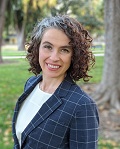
Sandra Lupien is the Director of MassTimber@MSU, a program at Michigan State University that harnesses outreach, communications, research, education, and partnerships to advance mass timber construction and manufacture in Michigan and the surrounding region. Sandra has two decades of diverse policy, communications, external affairs, and leadership experience in the non-profit, public, and private sectors, most of it working at the intersection of climate change, natural resource policy, and equitable and sustainable community development.
Sandra Marquart-Pyatt is a comparative researcher with substantive interests in environmental sociology, quantitative methodology, political sociology, and comparative social change. She specializes in the application of advanced quantitative techniques to pressing global social issues related to the environment and politics including environmental concern, sustainability, and democratic values. She joined Michigan State University (MSU) in 2009 and is jointly appointed in the Department of Sociology (SOC) and Environmental Science and Policy Program (ESPP). Her substantive research examines social change comparatively and cross-nationally, and includes both macro-comparative and micro-level work. She seeks to contribute to a deeper understanding of how and why macro-level and micro-level contextual factors shape the expression of environmental and political views and actions both across nations and over time. She examine these processes using quantitative methods such as structural equation modeling (SEM) and multilevel modeling, two approaches deeply rooted in sociology that specify latent constructs and allow the exploration of nested hierarchies, respectively. Her substantive research program investigates environmental and political processes across gradients from the global to the individual in single countries as well as comparative context.
Chris Melde is an associate professor, Director of Graduate Studies, and Associate Director in the School of Criminal Justice at Michigan State University. His research interests include street gangs, school safety, the ecology of violence, program evaluation, adolescent development, and individual and community reactions to crime and victimization risk. He is currently working on a Bureau of Justice Statistics funded project on the implementation of city-level victimization surveys in high crime urban areas in the State of Michigan, as well as two National Institute of Justice (NIJ) funded projects on school safety in Flint, MI. These focus on safe school climate, transitions to high school, and mental health in elementary schools. He has worked on an NIJ funded study of the impact of gang desistance on adolescent development, a BJA funded evaluation of Lansing, MI’s Neighborhood Stabilization and Youth Violence Initiative, and NIJ funded evaluations of: Project Safe Neighborhoods Comprehensive Anti-Gang Initiative; the Gang Resistance Education and Training (G.R.E.A.T.) school-based program; and the Teens, Crime, and the Community: Community Works school-based program. Dr. Melde was awarded the 2015 Tory J. Caeti Memorial Award from the Academy of Criminal Justice Sciences Juvenile Justice section for contribution of emerging scholars to the field of juvenile justice.
Dar Meshi is an assistant professor in the Department of Advertising and Public Relations and a faculty member in the Neuroscience Program at Michigan State University. He investigates how our brains process socially communicated information. In particular, Dar is interested in how information conveyed through social media motivates us and influences our decisions—humans are drawn to positive, rewarding social information, such as “likes” on social media. Social media platforms are a relatively new phenomenon, but they tap into social cognitive processes that have been hardwired into our brains over years of evolution. Dar's research program focuses on the brain and behavior of both adults and adolescents to elucidate these processes. To answer his research questions, he conducts behavioral experiments both in the lab and online. He also conducts neuroimaging experiments with an MRI scanner to examine brain activation and structures related to social information processing, especially in relation to social media use. Ultimately, with the knowledge gained by this research, Dar hopes to contribute to a better understanding of socially motivated human behavior.
Dar earned his B.S. in biology from the University of California at Los Angeles, and his Ph.D. from Columbia University in New York. After his Ph.D., Dar spent some time in New York working at advertising agencies, like Ogilvy and Mather.
Sharlissa is an Assistant Professor of International Energy Policy jointly appointed between James Madison College and the College of Engineering at Michigan State University. Her teaching and research interests focus on the social, policy, equity, and security dimensions of energy systems, particularly those that cross nation-state borders and are undergoing dramatic change. Sharlissa is writing a book on sustainable development and the Desertec vision, a plan to build solar and wind power plants in North Africa and to link the electricity grid around the Mediterranean region to provide for a 90% renewable energy future for the region. Sharlissa is also developing research collaborations in the College of Engineering to study the social and governance aspects of emerging energy technologies. She began her career studying astronomy and physics at Smith College and, since then, has continued to work with engineers and scientists to understand the social and policy dimensions of technology.
Dr. Rachel Mourão is an assistant professor of innovative technologies in the School of Journalism at MSU. Her research focuses on the relationship between journalism, technology, and politics in the United States and Latin America. She has a Ph.D. in journalism from the University of Texas at Austin and an M.A. in Latin American Studies from the University of Florida, where she specialized in the challenges faced by the press while covering politics, violence and protests. Employing both quantitative and qualitative methods, her projects analyze how mainstream and non-mainstream (“fake news”) reporters cover political events, and global threats to press freedom. Her recent projects focus on the 2016 elections, Black Lives Matter and right-wing Latin American movements. This work has been published in several peer-reviewed journals and awarded multiple times by both the Association for Education in Journalism and Mass Communication (AEJMC) and the International Communication Association (ICA), including the best dissertation award by both organizations in 2017. At MSU, she teaches digital media literacy and public affairs reporting focusing on local communities in the Greater Lansing area.
Jenna Watling Neal is an Associate Professor of Community Psychology at Michigan State University. Her research focuses on understanding how social networks can be leveraged in public schools to improve educational, health, and mental health outcomes for children and adolescents. Her past work has focused on exploring how children’s peer social networks are associated with aggressive and prosocial behavior. More recently, as a principal investigator of the Michigan School Program Information Project, she has examined how Michigan public school districts acquire information about and decide to adopt social skills, health, and instructional programs and practice. The William T. Grant Foundation and the National Institute of Mental Health have funded her work. Jenna is the recipient of the 2016 Society for Community Research and Action (APA Division 27) Early Career Award, and her research has appeared in journals such as Child Development, American Journal of Community Psychology, Sociology of Education, Social Development, Aggressive Behavior, Journal of Urban Affairs and Journal of Early Adolescence. She has given invited talks on the use of social networks in dissemination and implementation research at the NIH Conference on Dissemination and Implementation, the Association for Psychological Science, and the Association for Behavioral and Cognitive Therapies.
Zachary Neal is an Associate Professor of Psychology and Global Urban Studies at Michigan State University. His research uses the theory and tools of networks to understand urban and public policy issues in new ways, in the past focusing on the role of air transport infrastructure in economic development, and on urban spatial structure in building cohesive and diverse communities. He is currently co-leading the Michigan School Program Information Project, which explores how and where public school administrators acquire the information they use to make decisions. He is the author of more than 50 articles, chapters, and software programs, and has written or edited 3 books. He currently serves as a non-resident Senior Fellow at the Brookings Institution, Associate Director of the Globalization and World Cities (GaWC) research network, and in an editorial role at the Journal of Urban Affairs, Global Networks, City and Community, and the Metropolis and Modern Life book series.
Deyanira Nevarez Martinez completed her Ph.D. in Urban and Environmental Planning and Policy at the University of California, Irvine. She is currently a faculty member in the Department of Urban and Regional Planning in the School of Planning, Design and Construction and Core Faculty in the Chicano/Latino Studies Department at Michigan State University.
Before joining academia, Dr. Nevarez Martinez worked for the public and non-profit sectors. From 2009 to 2010 she worked for U.S. Congressman Raul M. Grijalva before moving to spearhead the campaign to fight Arizona’s ban on Mexican American Studies. Additionally, she has served as the Arizona State Coordinator for Mi Familia Vota Education Fund. Dr. Nevarez Martinez decided to pursue a degree in planning because she is passionate about equity and social justice in public policy.
Her research focuses on the role of the state in homelessness and housing precarity and informality. A major theme in her work is the criminalization of poverty in the United States. Additionally, her work has looked at issues of gentrification, racial equity in land-use and transportation, racial segregation, and bail reform. Dr. Nevarez Martinez has recently received a fellowship from the Institute for Research on Poverty at the University of Wisconsin - Madison to examine the housing conditions of farmworkers and other Latinx communities in Michigan and throughout the midwest.
Dr. Laura Schmitt Olabisi is an associate professor at Michigan State University, jointly appointed in the Environmental Science & Policy Program and the department of Community Sustainability. She uses system dynamics modeling and other systems methods to investigate the future of complex socio-ecological systems, often working directly with stakeholders by applying participatory research methods. Dr. Schmitt Olabisi’s past and present research has addressed soil erosion, climate change, water sustainability, energy use, sustainable agriculture, food security, and human health. She has led modeling and scenario exercises with stakeholders in the U.S., the Philippines, Nigeria, Zambia, Malawi, and Burkina Faso, and has published her work in Environmental Science & Technology; Ecology and Society; and Society & Natural Resources, among other outlets. Dr. Schmitt Olabisi holds a B.S. in Environmental Science from Brown University, and a Ph.D. in Systems Ecology from the State University of New York College of Environmental Science and Forestry. She is currently a PI or co-PI on four large research grants, with funding from NSF, USAID, IDRC (Canada), and USDA.

Michael Olabisi joined MSU in 2017 as an Assistant Professor in the Department of Agricultural, Food, and Resource Economics. He received his PhD from the University of Michigan in 2015, and has a master’s degree from Cornell University. He has worked with international scholars on research visits to Singapore and Beijing, with support from the National Science Foundation and the Center for International Business Education and Research (CIBER). He is currently affiliated with Michigan State University's Institute for Public Policy Research (IPPSR). Michael researches how firms shape economic development through international trade, and how supply chain linkages shape the responses of rational agents to economic shocks. His research papers describe the effects of volatility on international trade, and he has published work on how learning-by-exporting drives firm-level product innovation.
Jane Payumo is an Academic Specialist with research appointment at the Center for Global Connections (CGC), College of Agriculture and Natural Resources. She also serves as CGC’s Global Research Evaluation Manager and leads the monitoring and evaluation of CGC and AgBioResearch’s international research and development projects. Her academic and policy-related publications (https://orcid.org/my-orcid to http://orcid.org/0000-0003-1105-5851) focus on scientometrics, innovation management and technology transfer of modern biotechnology. Her interests include internationalization of science, grant mining, intellectual property management for development countries, econometric studies on international development, capacity building and training on intellectual property and metrics design and development. She received her Doctor of Philosophy at Washington State University, Pullman, WA; and undergraduate and Master’s degrees in the Philippines from Central Luzon State University and University of the Philippines, respectively.
Frank S. Ravitch is Professor of Law and Walter H. Stowers Chair in Law in Religion at the Michigan State University College of Law. He also directs the Kyoto Japan Program. He is the author of Freedom’s Edge: Religious Freedom, Sexual Freedom, and the Future of America (Cambridge University Press, 2016) (Nominated for a Prose Award); Marketing Creation: The Law and Intelligent Design (Cambridge University Press 2012), Masters of Illusion: The Supreme Court and the Religion Clauses (NYU Press 2007); Law and Religion: Cases, Materials, and Readings (West 2004)(2nd Ed. 2008) (3rd Ed. 2015 with Larry Cata Backer), School Prayer and Discrimination: The Civil Rights of Religious Minorities and Dissenters (Northeastern University Press, 1999 & paperback edition 2001). He is co-author, with the late Boris Bittker and with Scott Idleman, of the first comprehensive treatise on Law and Religion in more than one hundred years, Religion and the State in American Law (Cambridge University Press 2015) (this project was supported by a generous grant from the Lilly Endowment). He is also co-author of, Employment Discrimination Law (Prentice Hall, 2005) (with Pamela Sumners and Janis McDonald). Professor Ravitch's articles, which have appeared in a number of highly regarded journals, have primarily focused on law and religion in the U.S. and Japan, but he has also written about civil rights law and disability discrimination. He has authored a number of amicus briefs to the U.S. Supreme Court and has given numerous academic presentations nationally and internationally. In 2001, he was named a Fulbright scholar and served on the law faculty at Doshisha University (Japan). He has also made dozens of public presentations explaining the law before school groups, community groups, and service clubs and has served as an expert commentator for print and broadcast media.
Sarah Reckhow is an Associate Professor in the Department of Political Science at Michigan State University. She is also affiliated with the Education Policy Center at the MSU College of Education and with the Global Urban Studies Program. Her award-winning book with Oxford University Press, Follow the Money: How Foundation Dollars Change Public School Politics, examines the role of major foundations, such as the Gates Foundation, in urban school reform. She has recently published articles in Educational Researcher, Journal of Urban Affairs, Policy Studies Journal, and Planning Theory. She received her Ph.D. in political science from the University of California, Berkeley in 2009. Sarah was a high school teacher in the Baltimore City Public Schools.
Laura A. Reese is Professor of Political Science and the founding Director of the Global Urban Studies Program (GUSP) at Michigan State University. Dr. Reese’s main research and teaching areas are in urban politics and public policy, economic development, local governance and management in Canada and the US, and animal welfare policy. She has conducted large scale evaluations for the Economic Development Administration and sub-state economic development programs including Tax Increment Finance Authorities and Industrial Tax Abatements. She has written 10 books and over 100 articles and book chapters in these areas as well as public personnel administration focusing on the implementation of sexual harassment policy. She is the Editor-in-Chief of the Journal of Urban Affairs and conducts training for local and state government officials on economic development incentives. Her recent books include: Money for Nothing: Industrial Tax Abatements and Economic Development (with Gary Sands) 2012, Lanham, MD: Lexington Books. Comparative Civic Culture (with Raymond Rosenfeld) 2012, London: Ashgate Publications, and Reinventing Civil Society: The Emerging Role of Faith-Based Organizations in America (with Richard Hula and Cynthia Jackson-Elmoore), 2011, Armonk, NY: M.E. Sharpe.
Anna Maria Santiago Ph.D. is a Professor in the School of Social Work at Michigan State University. She holds a doctoral degree in Urban Social Institutions from the University of Wisconsin-Milwaukee and completed postdoctoral training in demography, poverty and public policy at the University of Michigan. Her current work focuses on (1) the impacts of housing and homeownership on low-income, minority communities and individuals; (2) neighborhood effects on the health and well-being of low-income children; and (3) human, financial and social capital formation, financial capability, economic security, workforce development and asset building strategies in low-income families. In each of these areas, she is concerned with identifying the ways in which federal, state, and local housing, social welfare and anti-poverty policies can be used to reduce the social and economic disparities experienced by low-income and minority families and children. Dr. Santiago’s research has been supported by grants from the U.S. Department of Housing and Urban Development, the National Institute of Child Health and Human Development.
Dr. Joshua Sapotichne (PhD, University of Washington, 2009) is an Associate Professor of Political Science focusing on American public policy and urban politics. He is also co-Instructor of InnovateGov, a summer internship program that provides students with the opportunity to learn about public sector innovation through work in Michigan's beleaguered cities. Josh received the 2010 Best Dissertation Award from the Urban Politics Section of the American Political Science Association for his work in examining the changing policy relationship between the US national government and American cities. Josh was selected as a Norton Long Young Scholar (2011) and as a Stone Scholar (2010), both for outstanding scholarship at a young age. Josh's new paper "Beyond State Takeovers” examines state and local financial data to systematically assess how state governments contribute to local financial distress, arguing that the State of Michigan has "structured local fiscal policymaking in a way that effectively incubates financial distress." An assessment of the impact of Michigan's local financial distress policy on the fiscal health of Flint, Michigan is provided in The Flint Fiscal Playbook: An Assessment of the Emergency Manager Years (2011-2015). Research for this ongoing project is supported by the C.S. Mott Foundation (co-PI Eric Scorsone).
Lawrence B. Schiamberg is currently Professor in the Human Development and Family Studies Department at Michigan State University. He was formerly Associate Dean for Research, Outreach and International Programs in the College of Human Ecology (1999-2003) and Director of the Institute for Children, Youth and Families (ICYF) at MSU from 1996-1998 where he was the Senior Editor of the MSU Series on Children, Youth, and Families. He has served as President-Elect of the Society for the Study of Human Development (SSHD) from 2007-2009 and as President of SSHD from 2009-2011. Over his forty years at Michigan State University, his teaching, research, and outreach addressed lifespan human development, with a focus on adolescence/youth and adult development/aging. Most recently his research has focused on adolescent bullying and elder abuse in families and in nursing homes. He is the author of numerous published articles and books, including seminal research and publications on the contextual (family, school and community) bases of adolescent bullying and elder abuse.
Dr. Eric Scorsone is the Director of the MSU Extension Center for Local Government, Finance and Policy. Dr. Scorsone is an MSU Extension specialist and a Professor of Economics in the Department of Agricultural, Food, And Resource Economics. He has worked at MSU since 2005, taking a break in 2010 to work as senior economist at the Michigan Senate Fiscal Agency. Prior to joining MSU, Dr. Scorsone developed award-winning Extension programs as an assistant professor in the Department of Agricultural Economics at the University of Kentucky. He also served as an Economist for the Colorado Governor’s Office of State Planning and Budget and as a Senior Economist for the City of Aurora, Colorado. He received his Ph.D. from Colorado State University, where his dissertation focused on economic models of growth in the Denver housing and labor markets. He received his Master’s degree from Michigan State University and a B.B.A. from Loyola University of Chicago. He has also worked on international development projects in Thailand, Macedonia, and Indonesia, and he has taught at the taught at the University of Bologna, Italy and University of Valencia, Spain. Dr. Scorsone is from Saginaw, Michigan and currently resides in DeWitt, Michigan.
Dr. Ann Sheehan is Clinical Faculty and Assistant Professor in Health Professions at MSU in the College of Nursing and a Pediatric Nurse Practitioner. Sheehan maintains a pediatric practice in Kalamazoo where she sees children and precepts nurse practitioner students. She has been a clinician for 28 years in both private and community clinics. She earned her Doctor of Nursing Practice degree at the University of Iowa in 2010 and was inducted as a Fellow of the American Association of Nurse Practitioners in 2019 for her policy work. Dr. Sheehan is regularly invited to speak at national and Michigan conferences on health policy topics. Additionally, Dr. Sheehan has a long history of professional board service holding policy and leadership positions both nationally and in Michigan.
Dr. Rodlescia Sneed is an Assistant Professor in the MSU Division of Public Health based in Flint, Michigan. Her work is focused on evaluating and improving how older adults age successfully in economically vulnerable communities. She is currently funded to conduct policy research through Policies for Action (P4A), a signature program of the Robert Wood Johnson Foundation administered through the national coordinating center at the Urban Institute. Through that work, she is focused on the impact of health care reform policies on equitable access to care for adults aged > 50. She currently serves on the leadership team of the Aging & Public Health section of the American Public Health Association and as an Associate Editor of the Journals of Gerontology. She holds a PhD from Carnegie Mellon University, a Master of Public Health degree from Columbia University, and completed postdoctoral training in Gerontology at the University of Pittsburgh
Mark Skidmore is professor of economics and agricultural, food, and resource economics at Michigan State University, where he holds the Morris Chair in State and Local Government Finance and Policy. He also serves as Director of the North Central Regional Center for Rural Development. He received his doctorate in economics from the University of Colorado in 1994, and his bachelor's degree in economics from the University of Washington in 1987. He currently serves as Co-editor of the Journal of Urban Affairs and is a Visiting Fellow at the Lincoln Institute of Land Policy. Professor Skidmore has expertise in public finance and urban/regional economics. Current interests include state and local government tax policy, intergovernmental relations, the interrelationship between public sector decisions and economic activity, and the economics of natural disasters. His work has been funded by the Fulbright Program, the Lincoln Institute of Land Policy, the National Science Foundation, the Urban Institute, and USAID. His research has appeared in many professional journals and has been cited in prominent news outlets such as the BBC, Boston Globe, CNNMoney, Economist, Forbes, MSNBC, Newsweek, New Yorker, New York Times, PBS News Hour, Reuters, and the Washington Post.
Chris Torres is an assistant professor of K-12 educational administration in the College of Education at Michigan State University. His scholarship focuses on how school choice reforms, particularly charter schools, affect practitioners and educational practice. Currently, his work includes studies on charter school teacher and leader turnover and mobility, sources of learning and support for charter leaders, hiring processes in charter management organizations (CMOs), disciplinary methods in “no- excuses” schools, and portfolio management model (PMM) governance reforms in New Orleans, Denver and Los Angeles.
Igor Vojnovic is a Professor in the Department of Geography, Environment, and Spatial Sciences, with appointments in the School of Planning, Design, and Construction and the Global Urban Studies Program. His main area of research focuses on urban (re)development processes, involving a range of issues, including environmental impacts, infrastructure investment, physical planning, and urban design. His work has been published in journals such as Environment and Planning A, Environment and Planning B: Planning and Design, Transportation Research Part D: Transport and Environment, Ecological Economics, Journal of Urban Design, Urban Geography, Journal of Urban Affairs, Cities, Applied Geography, Health and Place, GIScience and Remote Sensing, and Environmental Conservation. Vojnovic has worked in the public and private sectors, including with the Intergovernmental Committee on Urban and Regional Research, Public Sector Innovations, and Paul Raff Studio. He also has international consulting experience, on projects in the Ukraine, Cuba, Canada, Israel, Thailand, and China. His research has been funded by the National Science Foundation (NSF) and the Donner Foundation.
Chelsea Wentworth is a Research Fellow in the Department of Community Sustainability and affiliated core and GJEC faculty for the Center for Gender in a Global Context (GenCen). Chelsea is a social scientist and food systems researcher with interests in food security and access, public health nutrition, critical medical anthropology, gender inclusive development programs, and visual research methods. Currently, she is working on the Flint Leverage Points project, a community-research partnership with the Community Foundation of Greater Flint. This research aims to map the food system in Flint to identify leverage points to improve food security and support evidence-based public policy. Beginning in 2010, Chelsea leads a community-engaged research project in Port Vila, Vanuatu, and the peri-urban areas around the city in collaboration with the Vanuatu Cultural Centre and the Vanuatu Ministry of Health. She works with public health practitioners and families on issues of infant and young child feeding practice, urban gardening and land use change, gender and sustainability, and childhood malnutrition. Prior to joining MSU, she served as an Assistant Professor of Anthropology at High Point University, and as a qualitative research consultant for the Allegheny County Department of Human Services. She received her Ph.D. in Anthropology with a dissertation titled “Feasting and Food Security: Negotiating infant and child feeding in urban and peri-urban Vanuatu” from the University of Pittsburgh where she also earned a Master of Public Health, and a graduate certificate in Gender, Sexuality, and Women’s Studies.
Jeremy Wilson is the Director of the Center for Anti-Counterfeiting and Product Protection and is a Professor in the School of Criminal Justice at Michigan State University. Prior to joining MSU, he was a Behavioral Scientist at the RAND Corporation where he directed many local, national, and international public safety projects and served as founding Associate Director of the Center on Quality Policing and founding Director of the Police Recruitment and Retention Clearinghouse. He is a visiting scholar in the Australian Resource Council’s Centre of Excellence in Policing and Security at Griffith University, and he recently held the Willett Chair in Public Safety in the Center for Public Safety at Northwestern University and was an adjunct professor of public policy at Carnegie Mellon University. Dr. Wilson has collaborated with police agencies, communities, task forces, governments, and professional organizations throughout the U.S. and the world on many of the most salient public safety problems. His research on anti-counterfeiting integrates and draws from his broader interests in the areas of law enforcement, violence prevention, and internal security
Dr. Wilson is Professor of Urban and Regional Planning at Michigan State University and a research economist with the Institute for Public Policy and Social Research. Among his projects at IPPSR are Nonprofit Michigan which investigates the scale, structure, and contribution of Michigan's nonprofit sector; E*Space: The Electronic Space Project which addresses the social impact of the Internet; and Digital Communities which is a series of international conferences on technology and urban life. His research and teaching interests address urban planning, urban and regional economic development, information technology, public policy, and nonprofit organizations. Current projects include planning for industrial parks in Africa and the Middle East, mega event planning for world’s fairs and Olympics, innovation and information technology access in Michigan, and the planning of knowledge and innovation clusters. More information about Mark is available on his website. Mark is available at (517) 353-9054 and wilsonmm@msu.edu.
Stephen A. Woodbury is a Professor of Economics at Michigan State University and a Senior Economist at the W.E. Upjohn Institute for Employment Research. He has held visiting faculty appointments at Princeton (2014–2015), Stirling (1992), and Hawaii (1991), was on the faculty of Penn State (1979–1982), and was Deputy Director of the Advisory Council on Unemployment Compensation (U.S. Department of Labor, 1993–94). He is a Past-President of the Midwest Economics Association, and during 2009–2011 he directed a National Academy of Social Insurance study of unemployment insurance in the United States. He is the co-author of The Tax Treatment of Fringe Benefits (1991), and co-editor of Search Theory and Unemployment (2002) and Employee Benefits and Labor Markets in Canada and the United States (2000). He did his undergraduate work at the University of Pennsylvania and Middlebury College, and received his Ph.D. in Economics from the University of Wisconsin–Madison in 1981.
Jinhua Zhao holds appointments in the Department of Economics and the Department of Agricultural, Food, and Resource Economics. He is also the director of the Environmental Science and Policy Program at MSU. Zhao is a member of the Environmental Economics Advisory Committee of the EPA’s Science Advisory Board and a member of the Air, Climate, and Energy Committee of the EPS’s Board of Scientific Counselors. He was the co-editor of the Journal of Environmental Economics and Management and is on the editorial committees of the Annual Review of Resource Economics and Frontiers of Economics in China. His research interest is in the broad area of environmental and resource economics, with special interests in global climate change, energy economics, water, technology adoption, dynamic decision making under uncertainty, and applied microeconomics in general. He has conducted research on climate change adaptation, international climate negotiations, emissions trading, soil carbon sequestration, renewable energies, and the long-run relationship between international trade and the environment.

Claire Margerison-Zilko is an Associate Professor in the Department of Epidemiology and Biostatistics. Dr. Margerison-Zilko’s research examines the relationships between macro-and individual-level social and economic factors and maternal, infant, and child health with a focus on understanding the determinants of racial/ethnic and socioeconomic disparities in maternal and child health. With funding from NIH/NICHD, Dr. Margerison-Zilko is currently examining the impact of the recent Great Recession on adverse birth outcomes in the U.S. She was also recently awarded a K01 Mentored Career Development Award from NIH/NHLBI to examine links between women’s pregnancy health and their later-life risk of cardiovascular disease (CVD), focusing on biological, behavioral, and psychosocial factors that explain racial disparities in CVD among women. Another active area of research examines the relationship between perinatal health and aspects of the residential environment such as neighborhood socioeconomic history and racial residential segregation. Dr. Margerison-Zilko has a PhD in Epidemiology an MPH in Epidemiology and Biostatistics from the University of California, Berkeley.
Adam Zwickle holds a joint appointment with the School of Criminal Justice and the Environmental Science and Policy Program. Adam conducts interdisciplinary social science research centered on communicating environmental risks and encouraging sustainable behaviors. Drawing from the fields of social psychology and risk communication, his work integrates theories of individual perception and message framing to aide communication practitioners. Specifically, his goal is to better communicate environmental risks in ways that reduce the amount that their long term impacts are discounted. He is also active in sustainability issues at the university level. He has worked with colleagues to develop a valid assessment of sustainability knowledge targeted at undergraduate students, partnered with university sustainability offices to increase conservation behaviors among students, and believes in using campuses as living laboratories to produce both theoretical and practical research as well as tangible local impacts.


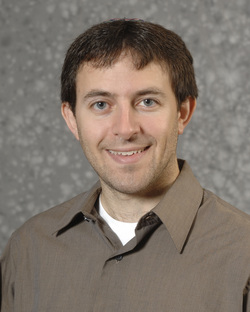

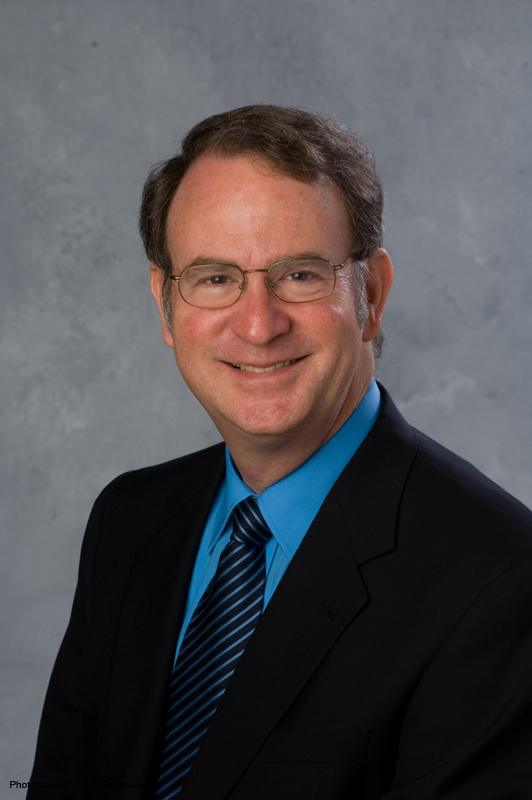

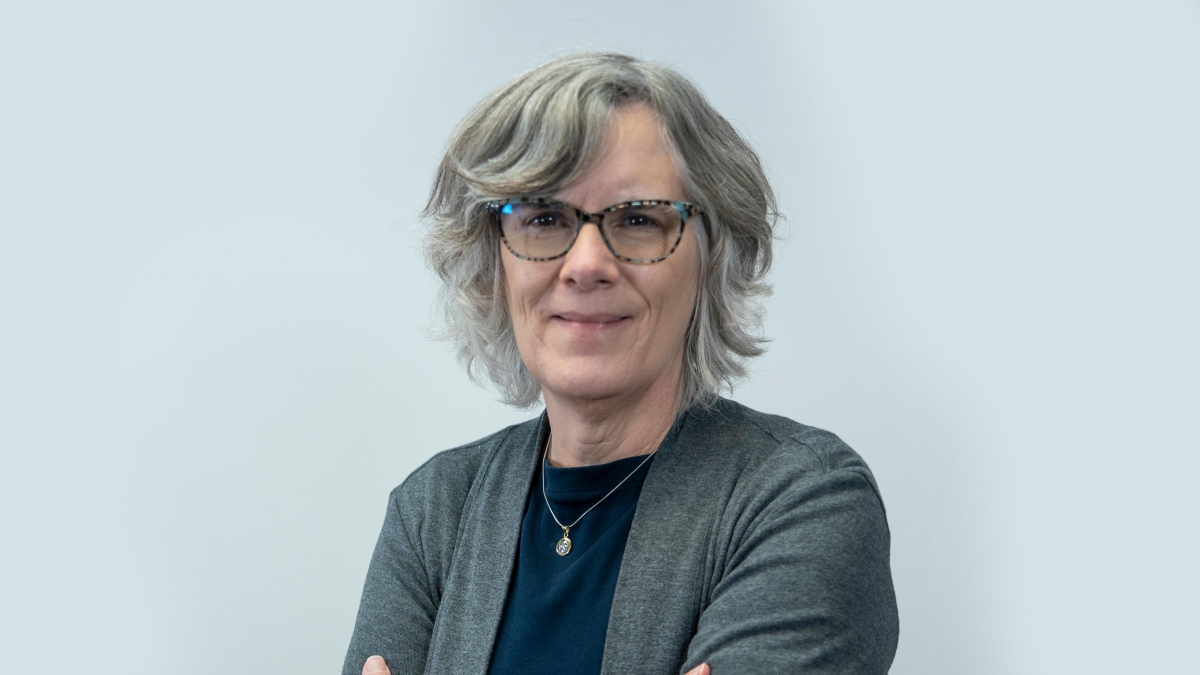

 Kristi Bowman
Kristi Bowman






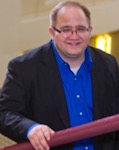
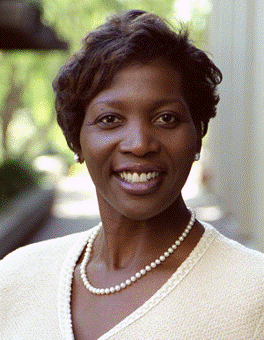
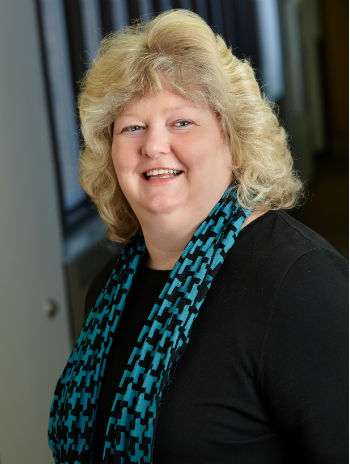
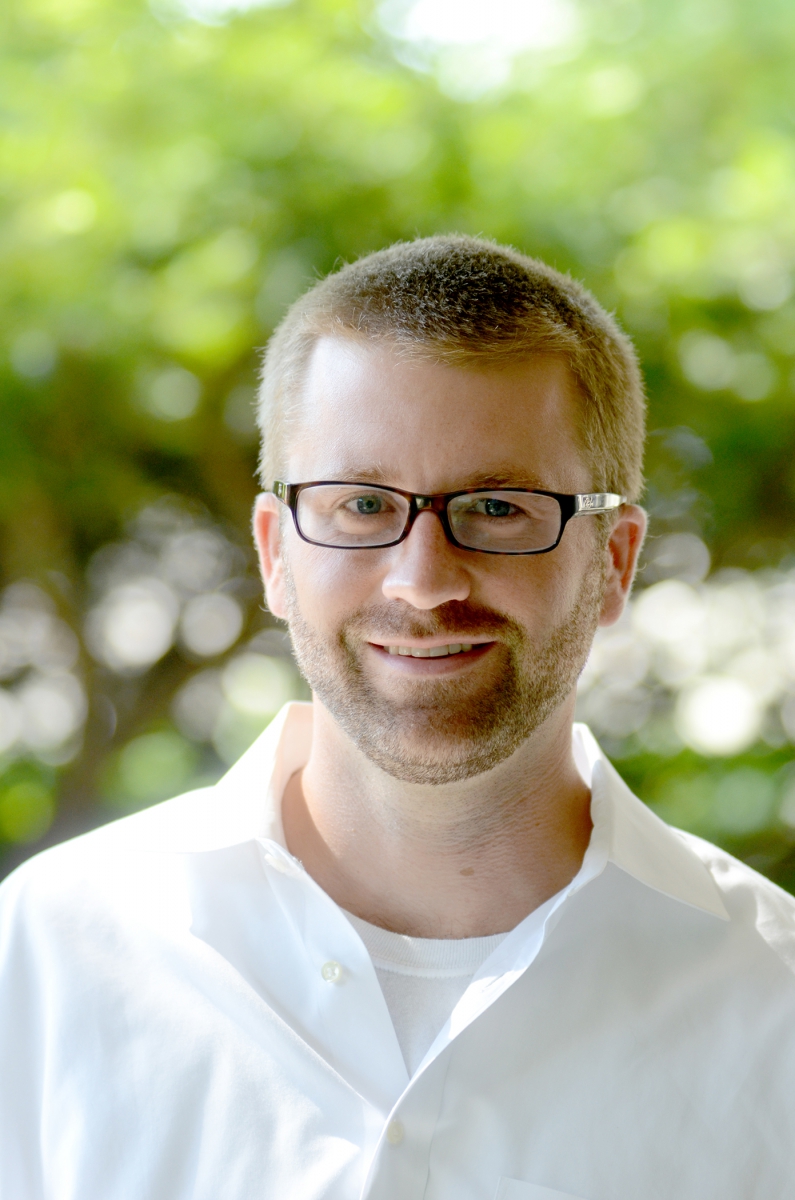









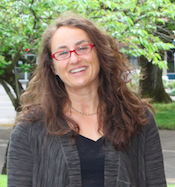
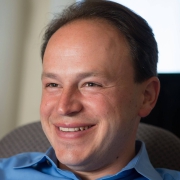
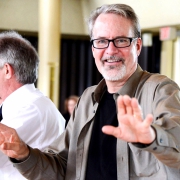
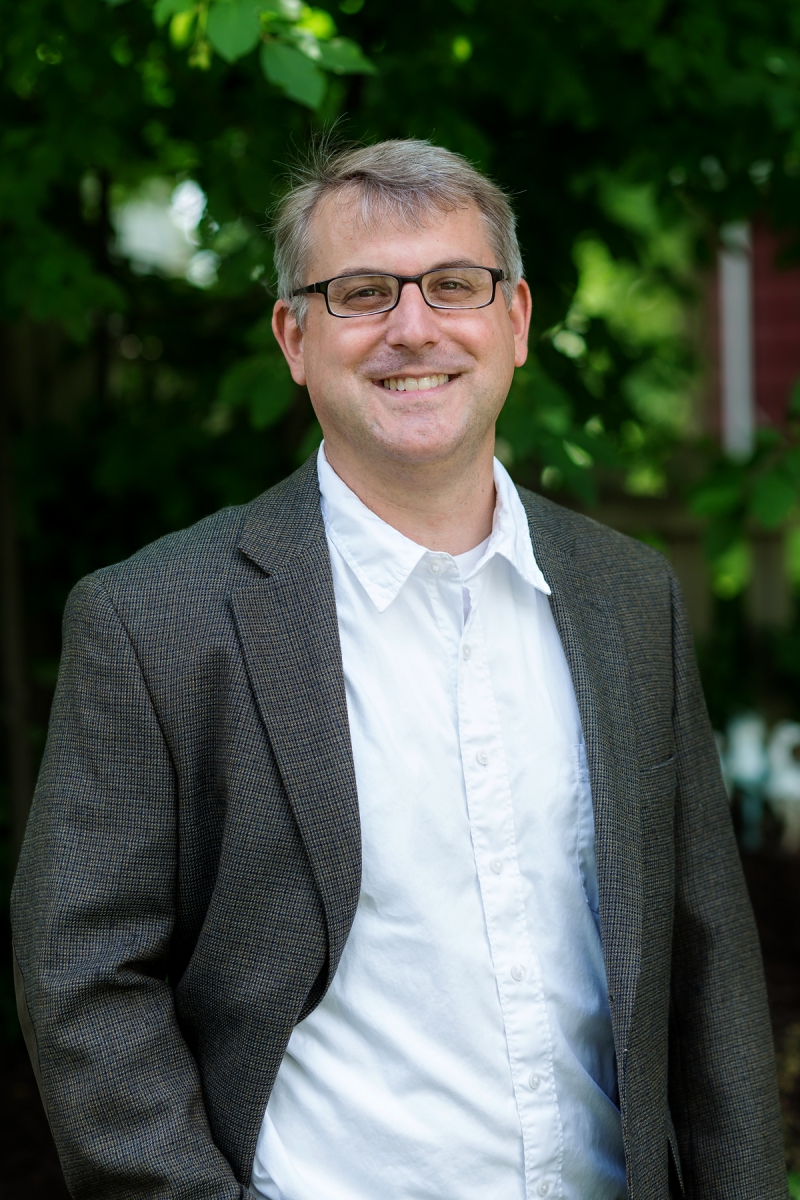

 Heather Howard
Heather Howard
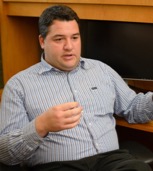
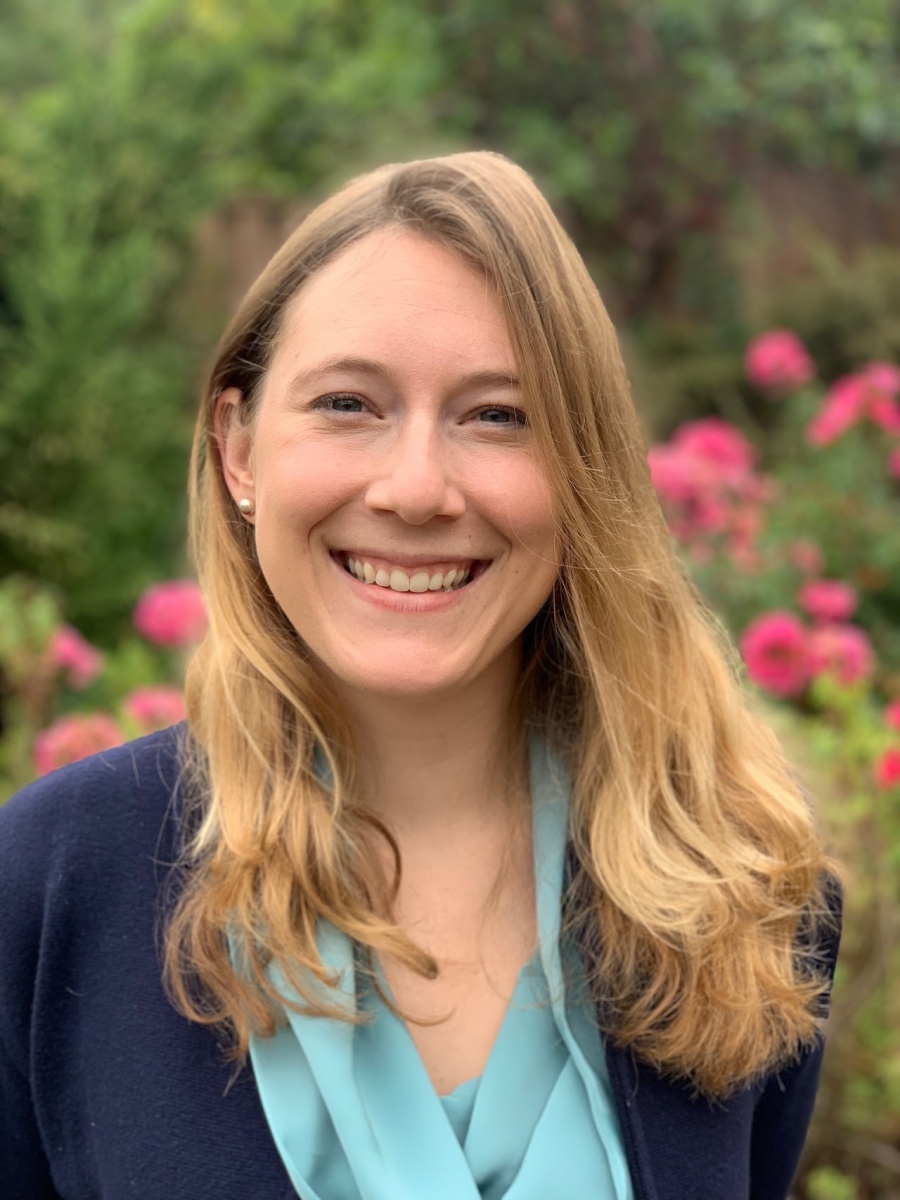
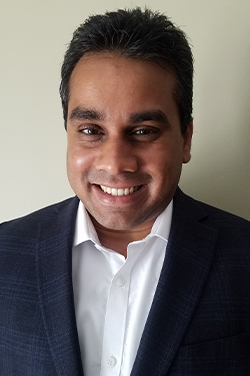
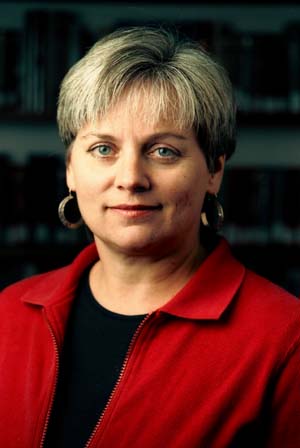
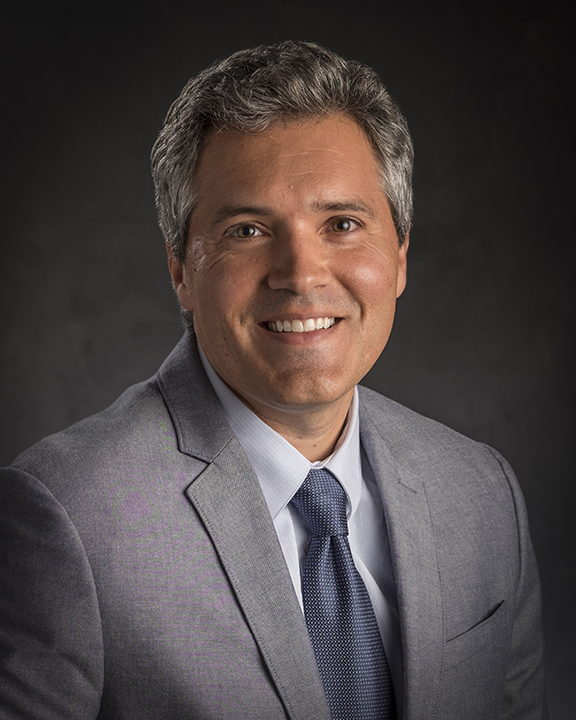
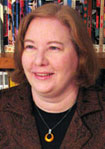 Michelle Kaminski
Michelle Kaminski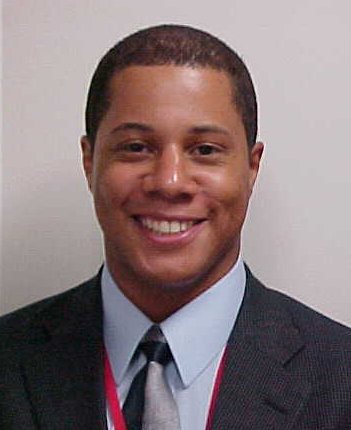

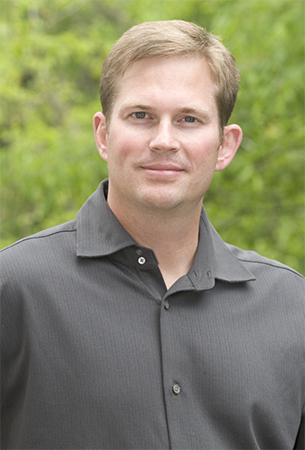
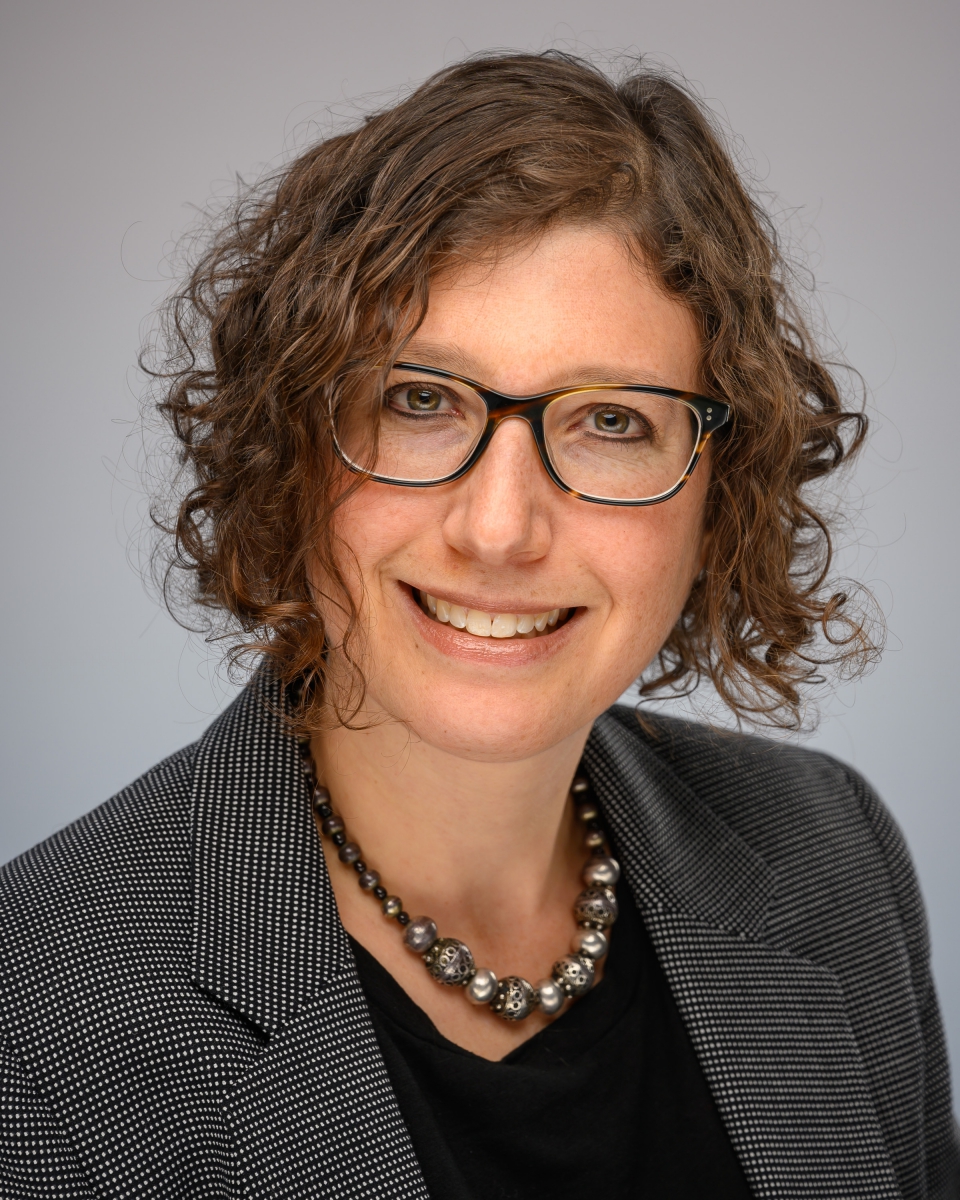 Mara Leichtman
Mara Leichtman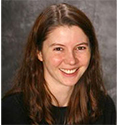
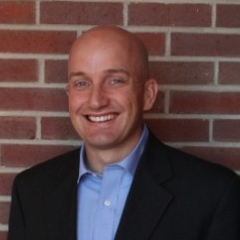
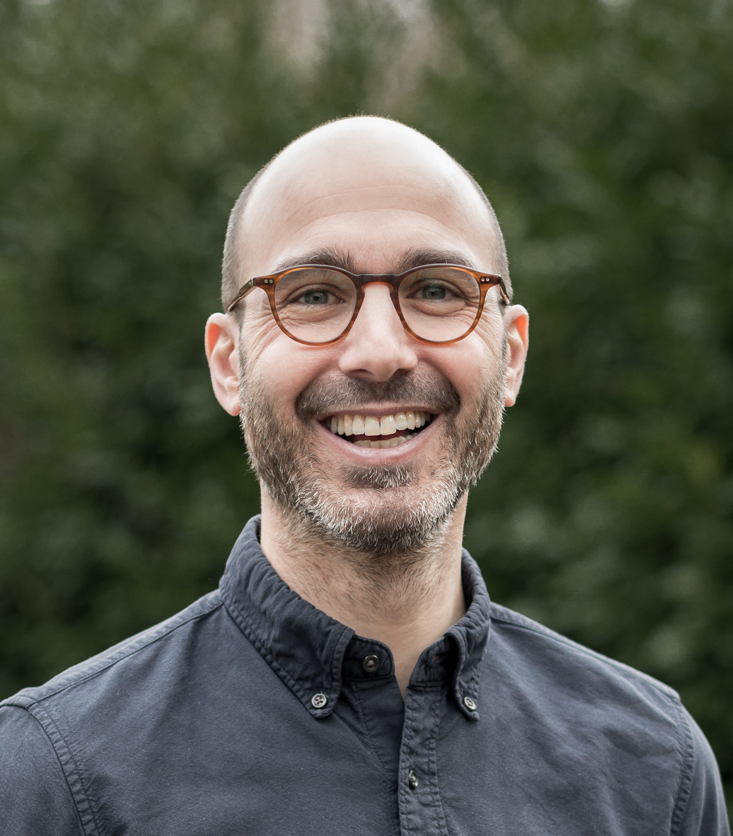

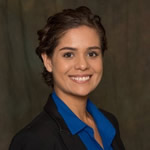


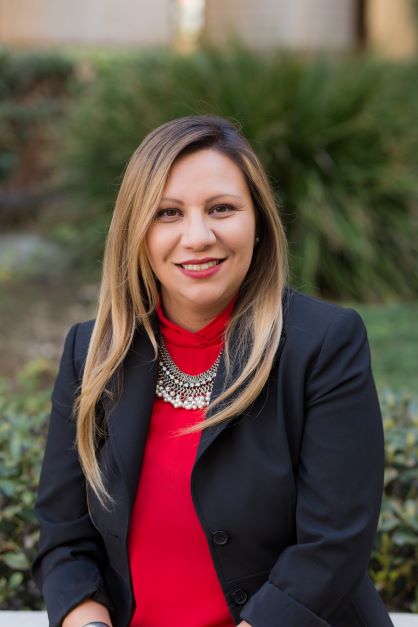
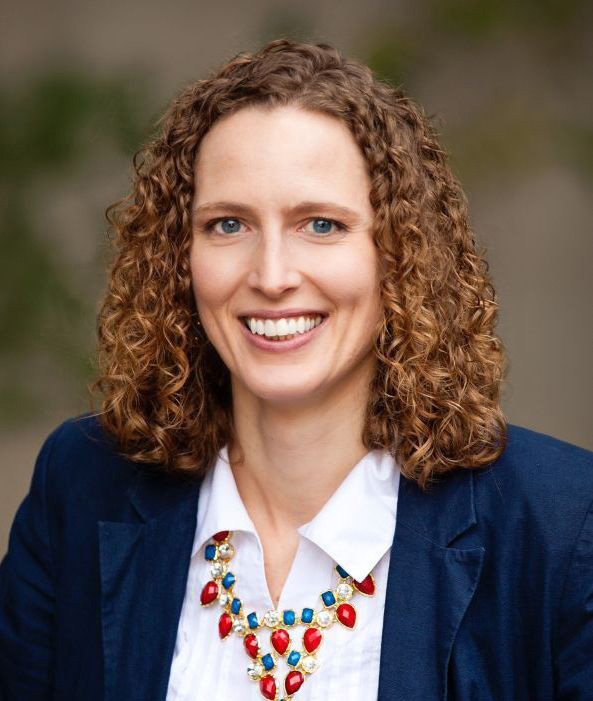
 Jane Payumo
Jane Payumo
